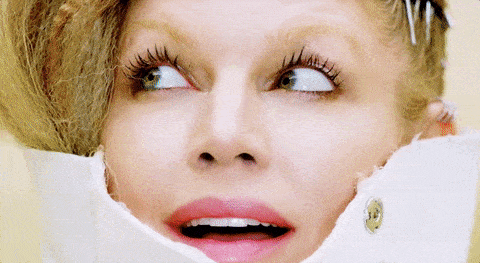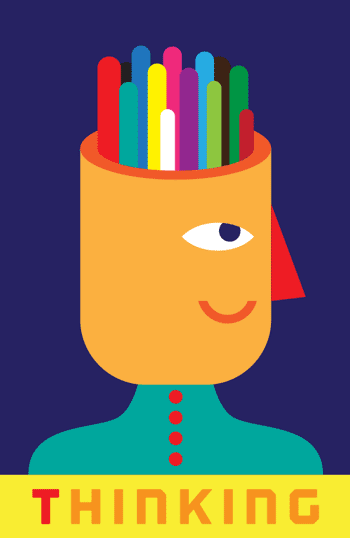10 facts you need to know before taking medication for your mental health.
- Thought Pudding

- Feb 10, 2020
- 4 min read
Updated: Mar 21, 2020
Here we clear all misinformation and myths surrounding psychiatric medication and familiarise you with best practices to help with your mental health.

1. Taking medication for mental illness will not mess with your brain.
The way psychiatric medications work is that they restore the imbalance in neurotransmitters that is present in the brain based on the condition one has. For instance, in Depression, levels of serotonin, norepinephrine decrease and medication will help restore this level. This is just one example, these imbalances are different for different disorders. In fact, these medications try to restore and mimic the original chemical activity of neurotransmitters in your brain and restore equilibrium.
2. Medication does work.
We often hear psychiatric medications don't work but that is not true. The thing to understand about psychiatric medications is that they take at least two weeks to have a noticeable effect on your mental health condition. Yes, it is a wait time compared to medication for physical illnesses but like we wait to complete our antibiotic course to

get all better similarly, psychiatric medication does take time to have a complete effect.
3. Medication does not slow down your brain.
The effects of psychiatric medication can be different for different people and in case of some medications one can feel groggy or sleepy but these medications do not make the brain slow. They are simply restoring the depleted neurotransmitters in the brain which can cause some initial adjustments but they do clear up. Also, with any other medication there are side effects that occur and can be managed with the help of therapy. To give an example, a common practice is to recommend clients to take their night medication a little early in the evening so that it does not interfere with them waking up fresh in the morning.
4. Not all psychiatric medications are addictive.
We cannot generalise this addictive property to all psychiatric medications. When one talks about pain medication or benzodiazepines and tranquillisers or sleep medication, they do show the potential to be addictive and so should be strictly taken as instructed and discussed with the psychiatrist while also maintaining caution. However, not all psychiatric medication is addictive, in fact 70% of psychiatric medications provided for various disorders are not addictive. For any drug to be addictive, they cause physical and psychological dependence in the user and psychiatric medications with exception of those mentioned above do not have such effects on their user.
5. Psychiatric medications should not be stopped as per own mood/wishes.
It is important to only start and stop taking medication at advise of the psychiatrist. It is never recommended that client's only take medication when they wish to, such practice can cause negative consequences for the client and delay treatment.
6. Side effects of these medications can be managed.
Many people shy away from taking medication for their mental health as they feel the side effects are too much to take that risk. We do agree there are side effects when one begins taking medication but they can be managed, are short lived and controlled easily. Talk to your psychologist on best ways to manage side effects. Most people worry about weight gain and reduced sex drive but there are enough variants now that can be prescribed by your psychiatrist to reduce this risk. You can always lose the weight and re-trigger that sex drive. In the long run, the benefits outweigh the risks when it comes to psychiatric medication.
7. There is no one size fits all when it comes to mental health medication.
If you're wondering why your friend is taking 5mg of Prozac for depression and you've been prescribed 10mg then stop right there. It is very possible and common that you might have to take a certain amount to help with how depression manifested in you and your friend might be taking a different amount. These decisions also depend on our personal body constituency. Don't compare, discuss what dose works for you best with your psychiatrist.
8. It can take time to find the perfect mix of medication for you.
Sometimes when your illness is severe or multilayered, it is possible you will take some time to get used to the medication prescribed to you. Sometimes, the medication might not suit you best and the fact is, you can always talk to your psychiatrist to find the perfect one. This happens with many people and is completely okay.
9. Autism is not treated with medication.
All mental health professionals endorsing medication for Autism are indulging in ill-informed and unethical practice. Autism is a neuro-developmental disorder diagnosed in childhood and can only be treated with therapy including occupational training. There is no scientifically recommended medication for Autism.
10. You are not weak for needing medication for your mental health.
Most people will tell you how taking medication for your mental health is just like how we take it for our physical health. And that's true. Sometimes our brain needs help especially in the kind of world we live today where you're going through a hundred stressors at a time, so if there's a chance to get better take it. You and your mind deserve the best. Don't judge yourself or let anyone judge you for taking care of yourself.
Note: We will keep adding more information to this list. In case you would like any questions answered you can write to us in the comment section and our team of mental health professionals will address those. We are available at hello@thoughtpudding.com





Comments